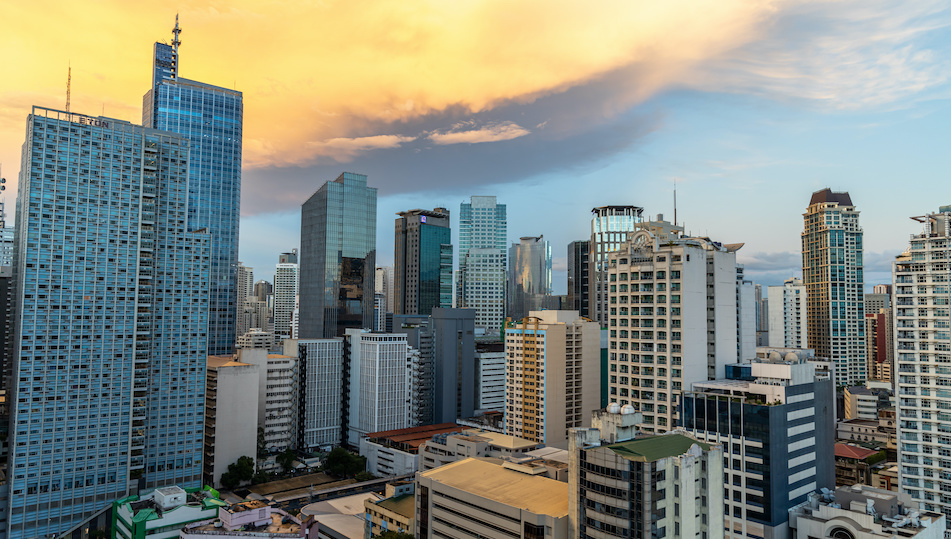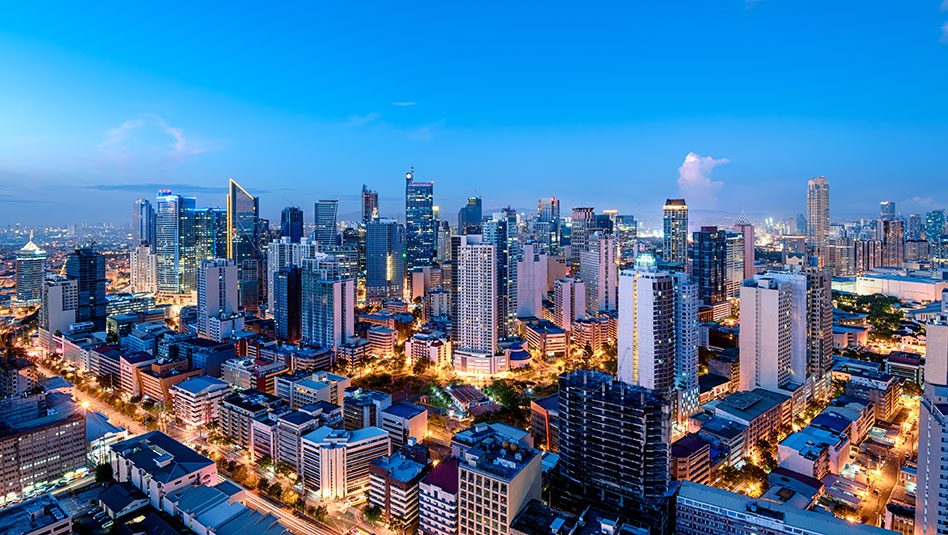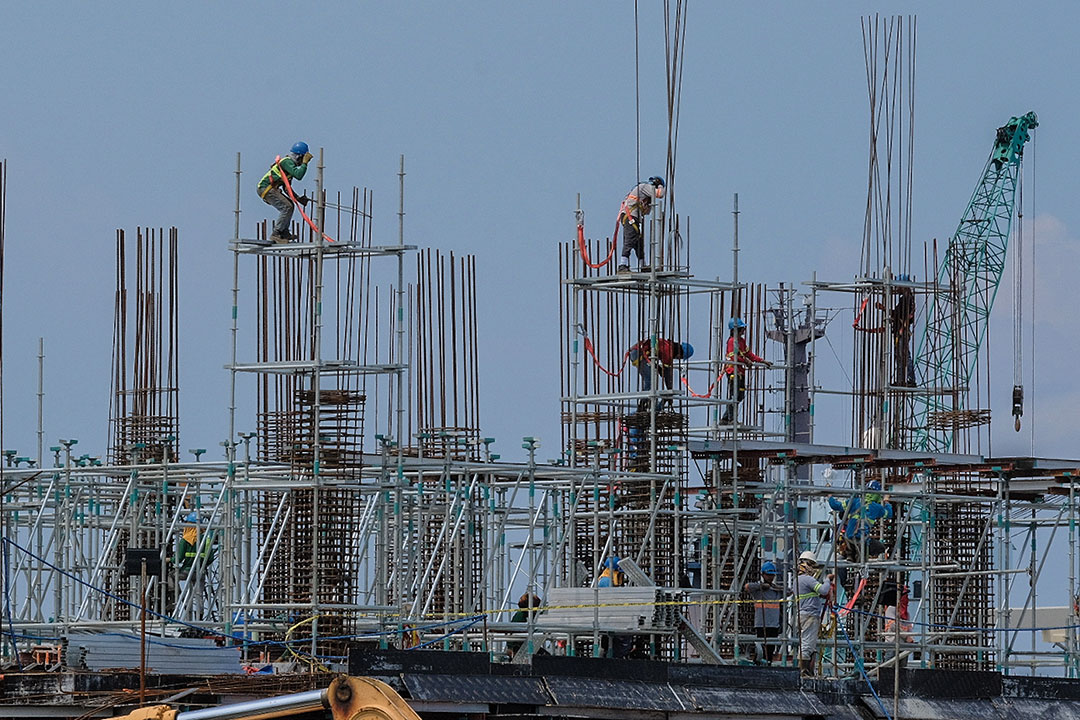




Inflation Update: Prices rise even slower in May
 DOWNLOAD
DOWNLOAD

Monthly Recap: BSP to outpace the Fed in rate cuts
 DOWNLOAD
DOWNLOAD

Quarterly Economic Growth Release: 5.4% Q12025
 DOWNLOAD
DOWNLOAD


TOP SEARCHES
House approves PHP 200 wage hike bill

The House of Representatives on Tuesday approved on third and final reading a measure seeking a PHP 200 across-the-board minimum wage hike for workers in the private sector, despite concerns over its potential inflationary effects and adverse impact on small businesses.
Lawmakers voted 171-1-0 to approve House Bill No. 11376, paving the way for the possibility of a first legislated wage hike since the late 1980s, when a law created regional wage boards to dictate pay rates.
Congressmen in February passed the bill on second reading, while the Senate greenlit a counterpart bill seeking a P100 wage increase last year.
However, the House’s approval of the wage hike comes just a few days before Congress adjourns for a final time on June 13.
In a statement after the approval, the Trade Union Congress of the Philippines (TUCP) urged the House and Senate leadership to immediately convene a bicameral conference committee to reconcile disagreeing provisions of their bills.
“I appeal to all my fellow bicameral committee conferees — my counterparts in the Senate and my colleagues in the House — let us get this done, and get it done now,” Deputy Speaker and TUCP Party-list Rep. Raymond Democrito C. Mendoza said in the statement. “We are way past the stage of whether we will pass a legislated wage hike, but how much that wage hike will be.”
“Regardless of whether it ends up closer to PHP 100 or PHP 200, this will be the most significant wage increase in nearly four decades,” he added.
The Philippines sets minimum wages regionally through wage boards, but lawmakers argue the system delivers slow and meager increases that fail to keep up with rising costs.
Around 55% of Filipino families see themselves as poor, according to an April Social Weather Stations survey. Data from the Philippine Statistics Authority in 2023 showed that a family of five needs at least PHP 13,797 a month or PHP 460 daily to make ends meet.
Giving a nod to a legislated wage hike would provide a “real boost” to achieving a livable wage, Federation of Free Workers President Jose Sonny G. Matula said before the bill’s approval, adding that it’s “pro-worker, pro-poor and pro-local economy.”
“A legislated wage hike breaks the cycle of barya-barya (loose change) adjustments from regional wage boards,” he said in a Viber message. “For minimum wage workers nationwide, this means a real boost to daily survival — a step toward a living wage.”
However, only five million workers would benefit from the wage hike, Sergio R. Ortiz-Luis, Jr., president of the Employers Confederation of the Philippines, said before the bill’s approval.
“Only 10% of employees would be affected by the legislated wage increase,” he said in a phone call, noting that most workers are in the informal sector. “Most are, for example, farmers, fisherfolk, tricycle and jeepney drivers and market vendors.”
Close to 50 million Filipinos were employed in March 2025, according to government data.
Companies would likely struggle to keep up with a legislated wage hike, prompting them to raise the prices of goods and services they provide, which could be inflationary, John Paolo R. Rivera, a senior research fellow at the Philippine Institute for Development Studies, said before the bill’s approval.
“Businesses could pass on the higher labor costs to consumers through increased prices,” he said in a Viber message. “However, the inflationary impact would depend on the scale of the wage hike and whether it is staggered or accompanied by productivity gains.”
An immediate wage hike could force companies to downsize their workforce, leading to job shedding and reduced hiring, he said. “Micro, small and medium enterprises (MSME) may struggle to absorb higher wage bills.”
MSMEs account for more than 99% of all businesses in the Philippines and generate 67% of the country’s total employment, according to the United Nations Development Program.
The Labor department may provide incentives to small businesses to help them comply with the legislated wage increase, according to the proposed law. Companies with fewer than 10 employees may be exempted from the measure too.
It could cost the government PHP 1.5 billion monthly if it chooses to subsidize small businesses just so they could comply with the proposed wage hike, said Mr. Ortiz.
“It could cost up to PHP 50 million a day,” he said. “Where will that come from?”
Lawmakers should instead let regional wage boards handle salary increases, Mr. Ortiz said. “There are regional wage boards that are raising wages every year.”
Congress should also look at implementing a legislative wage hike by phase or through a region-based approach to help balance the interests of businesses and workers, said Mr. Rivera. – Kenneth Christiane L. Basilio, Reporter
This article originally appeared on bworldonline.com





 By BusinessWorld
By BusinessWorld